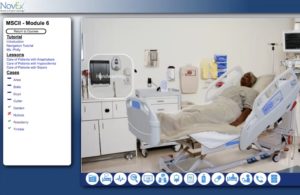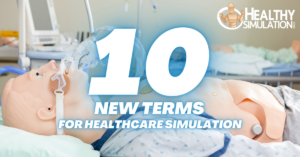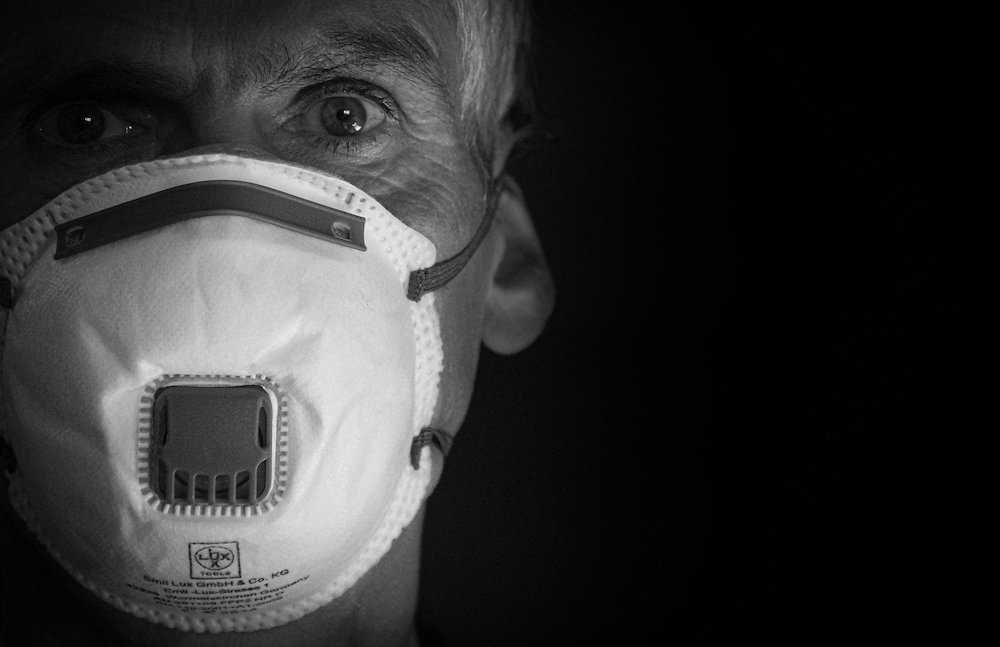California Simulation Alliance
The California Simulation Alliance (CSA) is a virtual entity and a non-profit program within the California Institute for Nursing & Healthcare. The association is a statewide network that serves as an information clearinghouse and umbrella for seven regional collaboratives that provide healthcare simulation education and research. In addition to this, each year the California Simulation Alliance hosts a variety of simulation conferences to push healthcare simulation to the next level of utilization.
In 2008, HealthImpact founded the California Simulation Alliance to network and support interdisciplinary healthcare educators in California and beyond. According to the organization, healthcare simulation professionals are utilizing multiple types of simulation in pre-licensure schools to provide high-quality clinical experiences in hospitals to improve patient care and teamwork.
CSA’s vision is to strengthen the healthcare simulation workforce through high-quality simulation. To achieve this, the organization works to strengthen expertise in simulation and advocate for simulation policy through interprofessional education, collaboration and evidence-based practice. With this goal, CSA’s values remain rooted in education, collaboration, partnerships, research and policy.
Sponsored Content:
In terms of education, the California Simulation Alliance believes that evidence-based simulation prepares learners for practice, strengthens curricula, and that all simulation faculty need ongoing development. To effectively collaborate, alliance members must network and share best practices, while strategic partnerships help them to advance simulation best practices and expand opportunities for outreach. Furthermore, the CSA promotes inter-organizational research on simulation, and acts as a voice for simulation to continuously improve the preparation of the healthcare simulation workforce.
KT Waxman, DNP, MBA, RN, CNL, CENP, CHSE, FSSH, FAONL, FAAN, is the director of the CSA and has been instrumental in the alliance’s establishment. She is a nurse leader with over 35 years of experience in healthcare and corporate settings. She is also an associate professor at the University of San Francisco School of Nursing and Health Professions.
Waxman is the immediate past president of the Society of Simulation in Healthcare. An internationally known speaker and author, Waxman is past president of the Association of California Nurse Leaders (ACNL) and is past Treasurer of the American Organization of Nurse Executives (AONE). She is also the editor-in-chief of the nursing journal Nursing Administration Quarterly (NAQ).
Waxman’s work has been published extensively and can be found in journals such as: Simulation in Healthcare, Clinical Simulation for Nursing, Journal of Nursing Education, Nurse Leader, Creative Nursing, NAQ, and MedSim. She is a chapter author for 3 simulation textbooks and the author of 3 books: “A Practical Guide to Finance and Budgeting: Skills for Nurse Managers”, “Financial and Business Management for the Doctor of Nursing Practice”, and “Healthcare Simulation Program Builder” by HcPro.
Sponsored Content:
Waxman received her DNP from the University of San Francisco, with an emphasis on health systems leadership and a concentration in clinical simulation. She holds national certifications as a Clinical Nurse Leader (CNL) and as a Nurse Executive (CENP), and a Healthcare Simulation Educator (CHSE). She is a fellow in the Society of Simulation in Healthcare, American Organization for Nursing Leadership, and the American Academy of Nursing.
California Simulation Alliance Simulation Courses
The California Simulation Alliance is a leader in faculty development for simulation educators, having trained over 2,500 simulation faculty. To foster simulation in healthcare and improve patient safety, the CSA offers courses that serve as a resource for these healthcare simulation interprofessional faculty members, and promote overall research on simulation.
CSA courses are designed for all levels and follow principles of adult learning. All courses are interactive and immersive in nature, and support the transition of the learner from novice to expert. The CSA courses are preparatory for the Certification as Healthcare Simulation Educator (CHSE) endorsed by the Society for Simulation in Healthcare.
The CSA recommends that novice simulationists take an “Essentials in Clinical Simulations Across Health Professions” course prior to enrolling in the alliance’s courses. This seven-week course provides learners with key strategies to help them understand the foundation of clinical simulations. During each module, learners receive instruction on seven key components of clinical simulation across healthcare professions and how they impact their current positions.
Of the CSA courses, Level I Training is a two-day course designed to engage the participant with an interest in simulation-based healthcare simulation training with the basic concepts of simulation as an educational strategy. Using a combination of didactic, interactive and immersive group work, the course provides the beginning simulation learner with the basics of high-fidelity simulation, scenario development, debriefing strategies to facilitate learning and the effective use of available technology. The course also provides a network of support for participants new to simulation through the vast resources in the California Simulation Alliance.
California Simulation Alliance’s Level II Simulation Intensive course spans three days and offers a “jump-start” into simulation-based healthcare education. Participants will learn to apply best practices in high-fidelity simulation through a variety of didactic, interactive and immersive formats. Using a dual focus on academic and practical settings, key theoretical concepts and strategies will be explored to support healthcare simulation educators in providing safe, effective learning environments. The basics of CSA Level 1 curriculum will be flexible to meet the needs of the group, followed by intensive immersion into Level 3 scenario development and basic debriefing strategies.
The Level III Training specialty workshops build on the knowledge and skills learned in previous CSA courses. For example, these workshops cover topics such as basic debriefing, advanced debriefing, scenario development, basic moulage, simulation evaluation, business planning and accreditation preparation. Learning the Society for Simulation (SSH) accreditation standards to develop a gap analysis and action plan for accreditation readiness is an important element of simulation education.
Additionally, CSA’s Simulation Operations Specialist course is designed to develop simulation operations specialists into highly-effective and knowledgeable team members. The course includes healthcare simulation-specific technical information combined with a broad overview of medical conditions, trauma conditions, human body systems and medical equipment information. The simulation-specific content presented relates to ethics, legal, regulatory and inventory management concepts.
When learners complete 10 hours of online Simulation Innovation Resource Center (SIRC) courses and a three hour self-study manual, they can then choose to attend a two-day on-site training course. Topics covered in the training course include:
- Role of the Operations Specialist
- Technology in Simulation Operations
- Troubleshooting and Maintenance
- Audio-Visual Operations
- Simulation Operations
- Instructional Design & Research
California Simulation Alliance Simulation Programs
The CSA Mentor Program is offered to healthcare simulation faculty who are engaged in simulation education. This program is designed to extend the learning experience for faculty by pairing individual learners with experienced CSA instructors. This approach is supported by evidence from the National Council on State Board of Nursing (NCSBN) study results and the National League of Nursing (NLN) Simulation Innovation Resource Center (SIRC) Faculty Development Toolkit.
This program works to facilitate the growth of simulation faculty from novice to competent instructors in alignment with the Benner theoretical model utilized by the CSA. During the CSA Mentor Program, learners are assigned a mentor, assigned a time period for mentoring, and told the total number of mentorship hours expected. The minimum mentoring time is five hours, and initial mentoring sessions usually span 30 minutes. The time for each session is negotiated between the mentor and the mentee.
Click Here to Connect to Leading Healthcare Simulation Vendors
HealthImpact and the CSA are licensed providers of the Apprentice Simulation Curriculum (ASC) developed by SimHealth Consultants. The CSA Apprentice Program is a structured opportunity for experienced faculty to teach in supervised learning environments. Here, experienced simulation faculty can directly model and mentor simulation education methods.
The apprentice site provides a 72-hour immersion experience over a period of months. This experience is conducted by designated simulation centers around the state that have completed training as apprentice sites. There are currently four apprentice sites in California — two in the Bay Area and two in Southern California. Apprentice Simulation Curriculum sites include:
- Samuel Merritt University Health Sciences Simulation Center in Oakland
- The Center for Advanced Pediatric and Perinatal Education (CAPE) at Lucile
- Packard Children’s Hospital (LPCH) at Stanford in Palo Alto
- Providence Little Company of Mary Medical Center in Torrance
- The Loma Linda University Medical Simulation Center in Loma Linda
Learn more on the California Simulation Alliance website or read these articles below.
California Simulation Alliance Simulation Education Latest News

California Simulation Alliance and HealthySimulation.com Sign Media Partnership

NovEx Nursing Simulation Cases Help Supplement In-Person Clinical Practicum

Simterviews: Dr. KT Waxman | Associate Professor at the Associate Professor at the University of San Francisco School of Nursing and Health Professions

10 Medical Simulation Keywords You Need to Know About
Sponsored Content:



















